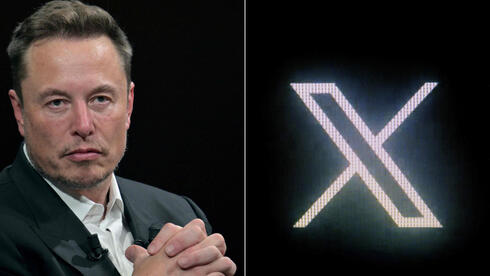
ISRAEL AT WAR
Not so fast: Musk admits that deploying Starlink terminals in Gaza will be difficult
In response to the announcement by the Israeli Minister of Communications that the state will take all necessary measures against the move, Elon Musk admitted that the operation of terminals for the use of humanitarian organizations in Gaza will only be carried out in coordination with Israeli and US authorities.
"No Starlink terminal has attempted to connect from Gaza. If one does, we will take extraordinary measures to confirm that it is used *only* for purely humanitarian reasons", stressed Elon Musk on Saturday. His clarification in a post he published on X came after a firm announcement from Israel that it would prevent the use of the Starlink satellite internet system in Gaza.
"Moreover, we will do a security check with both the US and Israeli governments before turning on even a single terminal. We are not so naive", he replied to Israeli minister Shlomo Karhi's announcement, which said: "Hamas will use it for terrorist activities. There is no doubt about it, we know it, and Musk knows it. HAMAS is ISIS". Karhi added that "Israel will use all means at its disposal to fight this".
On Friday the Israeli Defense Forces (IDF) launched an operation targeting internet and media infrastructure in the Gaza Strip to disrupt communication among Hamas terrorists, hindering their ability to prepare, coordinate, and respond to Israeli military activities within the area. Three weeks ago, on October 7, Hamas terrorists brutally massacred and murdered over 1,400 Israeli civilians (babies, children, women, and the elderly), injured 4,000 more, and kidnapped over 200 innocent civilians in the Gaza Strip. In response to these inhumane crimes, Israel decided to launch a military operation to eradicate Hamas' terror regime in the Gaza Strip.
According to Musk's early announcement, there will be several issues to consider before allowing the use of the Starlink system, a division of Musk's SpaceX. At the most basic level, connecting to the system requires the use of dedicated ground stations, and it's uncertain whether Israel will approve their use in Gaza. More significantly, even though Musk asserts that the system will be used exclusively for the benefit of humanitarian organizations, in practice, Starlink may not have the means to verify the identities of system users, potentially allowing Hamas to seize control of the ground stations for its own purposes. In fact, it's highly likely that if Starlink is indeed activated in Gaza, Hamas will gain access to the internet through Musk's initiative.
With the assistance of a vast fleet of thousands of small satellites orbiting the Earth in low orbital course, Starlink can offer high-speed internet access to nearly any location worldwide, eliminating the need for extensive local infrastructure, aside from a relatively small relay station that communicates with an array of satellites. The initial satellites of the system were launched into space in 2019 and have been consistently launched almost every week since. Currently, Musk oversees more than 4,500 active internet satellites orbiting the Earth, constituting 50% of all satellites and delivering satellite connectivity to approximately 60 countries.
The ultimate goal is to expand this constellation to 42,000 satellites, ensuring global coverage. The system gained international recognition after the Ukrainian military began employing it in the wake of the Russian invasion last year, which had resulted in the destruction of local infrastructure in areas under Russian control. Approximately two weeks ago, Communications Minister Karhi announced ongoing negotiations regarding the deployment of the system in Israel.













